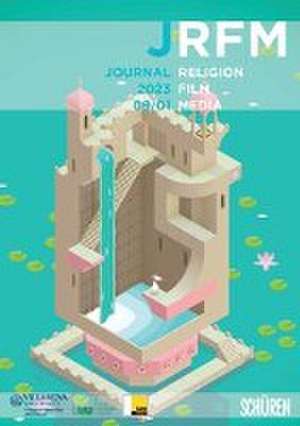Paradise Lost: Journal for Religion, Film and Media, cartea 1/2022
Editat de Frank Bosman, Alexander Darius Ornellaen Limba Engleză Paperback – 14 mai 2023
Preț: 108.84 lei
Nou
Puncte Express: 163
Preț estimativ în valută:
20.83€ • 21.72$ • 17.31£
20.83€ • 21.72$ • 17.31£
Carte disponibilă
Livrare economică 24 februarie-03 martie
Livrare express 13-19 februarie pentru 19.43 lei
Preluare comenzi: 021 569.72.76
Specificații
ISBN-13: 9783741004407
ISBN-10: 3741004405
Pagini: 201
Ilustrații: einige Abbildungen
Dimensiuni: 148 x 210 x 12 mm
Greutate: 0.27 kg
Editura: Schüren Verlag
Seria Journal for Religion, Film and Media
ISBN-10: 3741004405
Pagini: 201
Ilustrații: einige Abbildungen
Dimensiuni: 148 x 210 x 12 mm
Greutate: 0.27 kg
Editura: Schüren Verlag
Seria Journal for Religion, Film and Media




